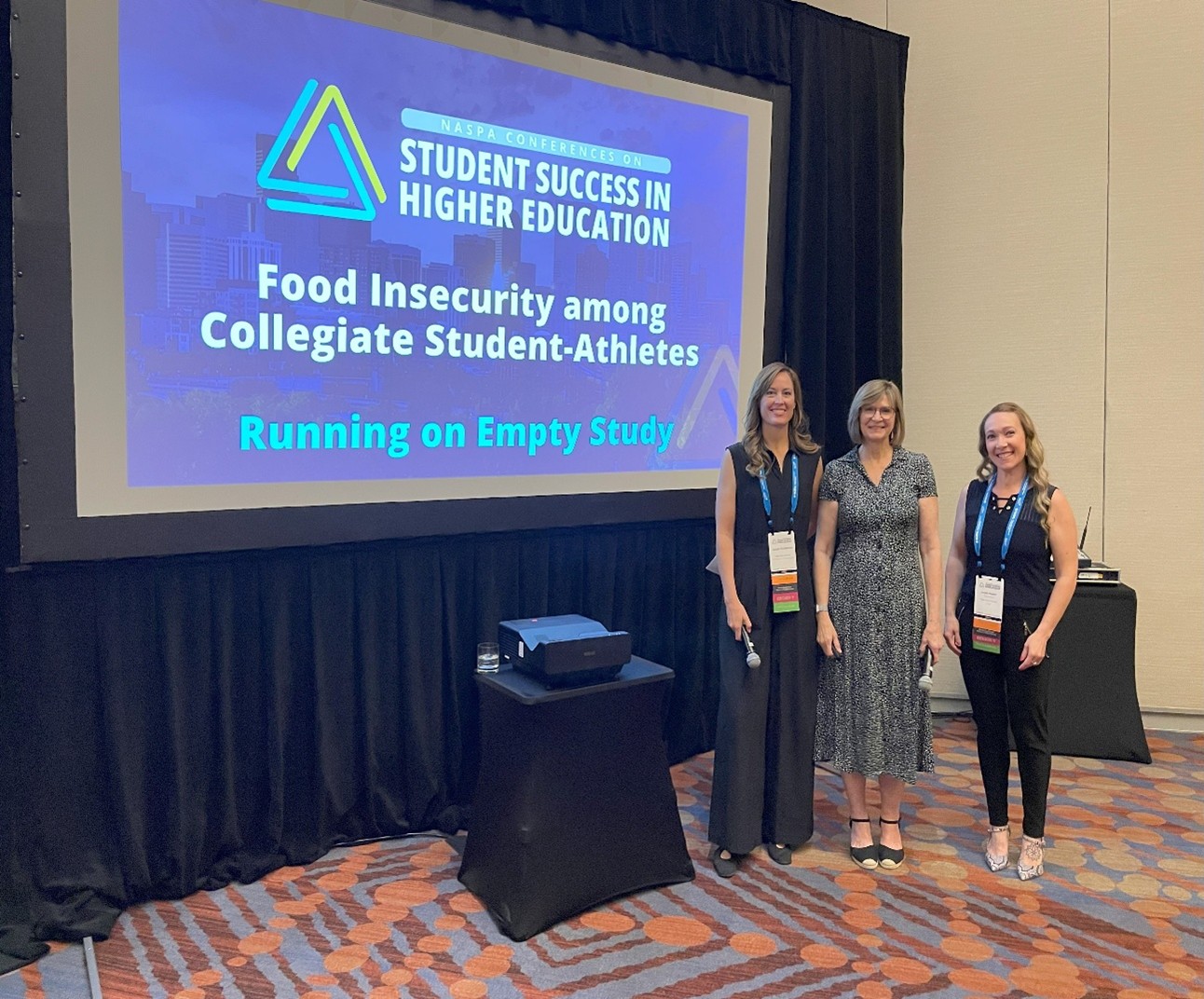Running on Empty: Systemic Factors Fuel Food Insecurity Among Collegiate Student-Athletes
October 2, 2025

An ISU research team recently presented findings from the Running on Empty Study at the National Association of Student Affairs Administrators in Higher Education (NASPA) Conference in Denver, CO. This study examines the issue of food insecurity among collegiate student-athletes.
Depending on the setting, up to 65% of student-athletes in all NCAA divisions face food insecurity, which affects students’ physical health and mental acuity. Food insecurity, thus, impacts both their academic and athletic performance.
Research team members included Barbara Gordon, EdD, RDN, ISU professor emeritus, Natalie Christensen, RDN, CSSD, ISU director of sports nutrition, and Jennifer Reader, RDN, associate professor at the University of Idaho Extension and doctoral student in the ISU Educational Leadership program. Their presentation highlighted the perspectives of athletic trainers, sports dietitians, and other professionals in the Big Sky Conference regarding factors contributing to food insecurity gleaned from a series of focus groups.
Some factors contributing to the risk for food insecurity were financial strain, competing priorities (i.e.practice schedules that conflict with dining hall hours, student prioritization of academics and athletics over eating, and insufficient funding for fueling stations and sports dietitians), limited life skills, and new or different living conditions which may impact food accessibility. Social and cultural influences also play a role, as students may not have access to cultural foods or resources and the normalization of poverty on campus (i.e. the “broke college student” stigma, which accepts financial struggle as a normal part of college life).
Research suggests that solving the problem requires engagement of all stakeholders, including student-athletes, athletics department professionals, and university leadership. Gordon commented, "Though insufficient funds emerged as a key contributing factor, money alone won’t solve the issue of food insecurity among student-athletes. To ensure food security for all student-athletes, we also need to address underlying factors such as dining hall meal times conflicting with practice times, meal plans/food stipends not reflecting the extra calories needed to excel in athletics, food security screening protocols not being part of the annual physicals, and lack of awareness about food insecurity being a problem for some student-athletes." The contributing factors of food insecurity are many and layered, which is why it is important for universities to become involved at an institutional level to help bring an end to food insecurity for athletes.
The research team hopes that by disseminating the findings of this research that universities can work towards identifying and addressing food insecurity early, before it becomes a larger problem for the students affected.
Read more about the study in Nutrients, a peer-reviewed scholarly journal.
Categories:
AthleticsCollege of Health ProfessionsResearchUniversity News
